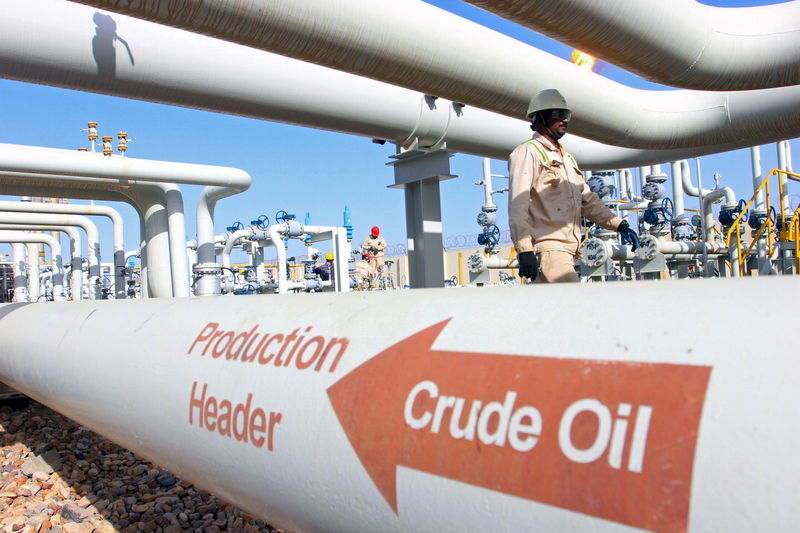Investing.com — Oil prices settled lower, as China-led worries about weaker crude demand continued to linger despite the world’s largest crude importer unveiling ambitious growth plan.
At 14:30 ET (19:30 GMT), the fell 0.9% to settle at $78.02 per barrel, and the expiring in May fell 0.7% to $82.83 a barrel.
China keeps 5% GDP target for 2024, outlines economic reforms
China set a gross domestic product target (GDP) of 5% for 2024, the same as the prior year. The target and other economic proposals were both unveiled in an official report released during the annual meeting of the country’s National People’s Congress.
While Beijing outlined more economic changes to help shore up growth, the government’s messaging was largely unchanged from its previous signals, providing investors with little cause for optimism over what has been a sluggish economic rebound in China.
Weak private released on Tuesday further dented sentiment.
Concerns over China, coupled with uncertainty over the path of U.S. interest rates, have factored into anxiety over weaker oil demand so far this year.
Fresh update on production eyed
Following five-straight week of larger-than-expected increased in domestic crude supplies and ongoing concerns about growing non-OPEC global output, U.S. crude inventory data from the American Petroleum Institute due later Tuesday as well as a further report from EIA due Wednesday will likely be closely watched.
The EIA is expected to stockpiles fell by 2.6 million barrels for the week ended Mar. 1.
Gaza ceasefire talk remains in play
Meanwhile, growing calls from top U.S. officials for a ceasefire between Israel and Hamas saw markets pricing in a greater chance of a de-escalation in tensions in the Middle East.
President Joe Biden has been pushing for an agreement to be reached by next week by the start of the Muslim holy month of Ramadan on March 10.
Fears of supply disruptions stemming from geopolitical ructions in the Middle East have been a key point of support for oil prices in recent months, particularly as Israel and Hamas repeatedly rejected calls for a ceasefire. The war has also spilled over into the Red Sea, severely disrupting activity in the crucial shipping artery between Europe and Asia.
(Scott Kanowsky, Ambar Warrick contributed to this report.)
Read the full article here
